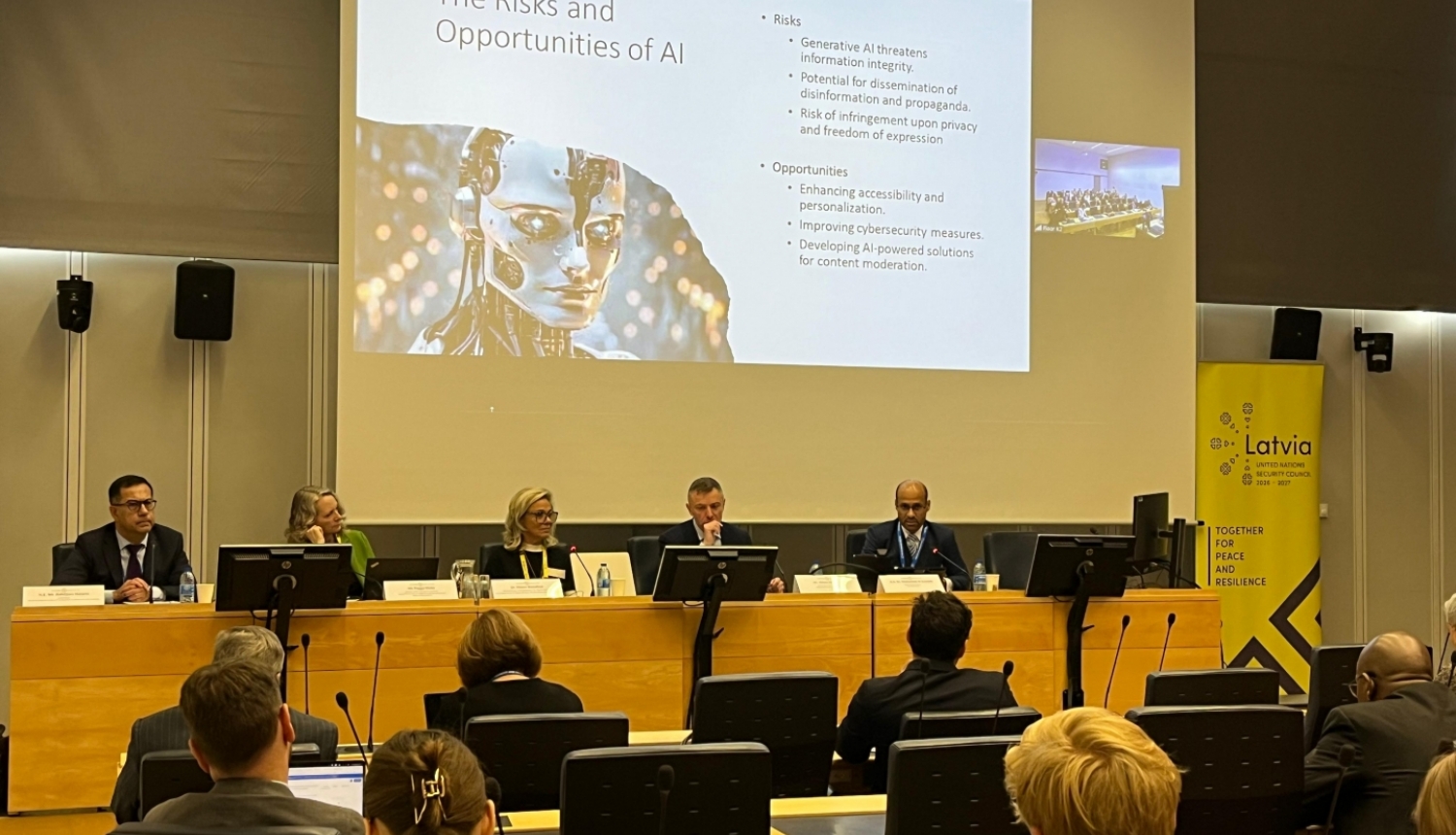On 30 May 2024, the International Telecommunication Union in Geneva hosted a panel discussion on “How Can AI Help Protect Information Integrity”, organised by Latvia.
The panel discussion was organized a side-event of the WSIS+20 Forum High-Level Event. The discussion aimed at seeking solutions, in the age of increasing use of Artificial Intelligence (AI) technologies, for safeguarding information integrity and countering disinformation that undermines global security, while respecting human rights and free speech.
The experts underlined that it was the responsibility of democracies to safeguard democratic values. They called for policy development and promotion of international cooperation, cooperation with the private sector, especially large technology companies, as well as for investment in societal resilience.
In the realm of global AI governance, Latvia has the opportunity to make its interests heard and share its experience, as well as to better understand the interests and concerns of other countries, said Viktors Makarovs, Special Envoy on Digital Affairs at the Ministry of Foreign Affairs of Latvia. We are seen as leaders in the fight against disinformation, which enables us not only to talk about Latvia’s expertise, but also to promote dialogue and seek solutions on a global scale. Latvia pays particular attention to the risks created or intensified by the AI in the information environment, the Special Envoy noted.
Panellists of international renown from various regions discussed opportunities and challenges presented by AI to integrity of information space. An Indonesian organization, MAFINDO, was represented by its Co-founder and Chairman, Septiaji Eko Nugroho, the U.S. Government – by the Special Envoy and Coordinator for Digital Freedom, Dr. Eileen Donahoe, the UAE Government – by its Head of Cyber Security, Dr. Mohamed Al Kuwaiti, and the Office of the UNHCHR – by the Director of the Thematic Engagement, Special Procedures and Right to Development Division, Peggy Hicks.
Opening remarks for the event were delivered by Bahtijors Hasans, Ambassador, Permanent Representative of Latvia to the UN in Geneva, and its moderator was Viktors Makarovs, Special Envoy on Digital Affairs at the Ministry of Foreign Affairs. The panel, held in a hybrid format, brought together representatives from more than seventy governments and non-governmental organisations.
As part of his visit to Geneva, on 29 May, Special Envoy on Digital Affairs, Viktors Makarovs, alongside leading academics, government officials, major tech companies and non-governmental organizations also took part in an “AI for Good” Global Summit roundtable discussion on MI governance issues.
The World Summit on the Information Society (WSIS+20) aims at serving as a platform to address ICT-related matters in a structured and inclusive manner at the national, regional and international level. For its part, the goal of AI for Good Global Summit is to identify practical applications of AI to accelerate progress towards the Sustainable Development Goals (SDGs) and to connect AI innovators with public and private sector decision-makers to help scale up AI solutions globally.
The events were implemented as part of the public diplomacy programme in support of the lobby campaign of Latvia’s candidature for the United Nations Security Council. The campaign under the motto of “Together for peace and resilience” aims at ensuring successful election of Latvia to the United Nations Security Council for the 2026–2027 term in the 2025 election, at which Latvia is running for an elected member’s seat for the first time. Membership of the UNSC will be a key instrument in pursuit and protection of Latvia’s foreign policy interests, as well as making it possible for Latvia to expand the scale of its international cooperation and thereby contributing to world peace and resilience.




